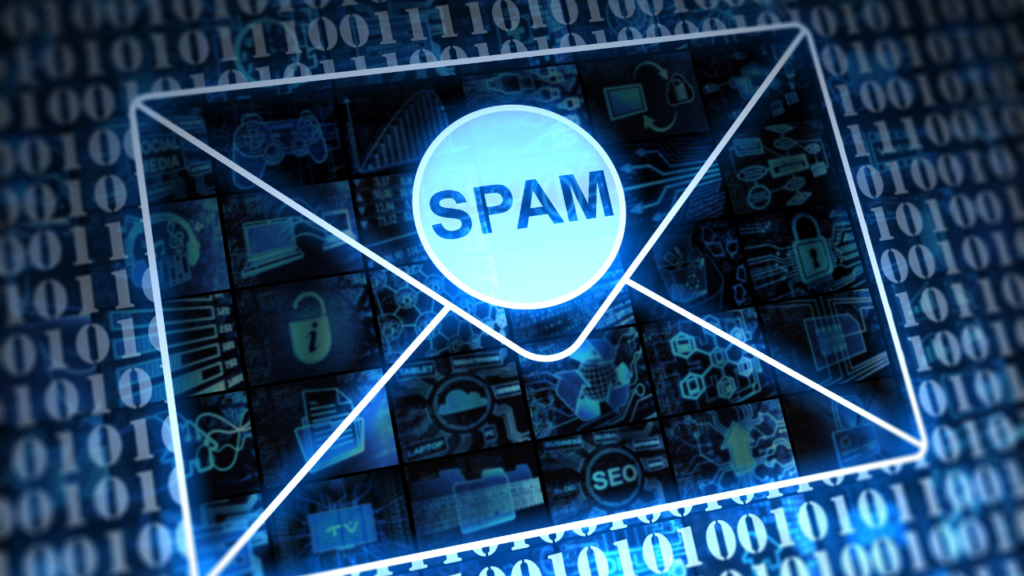Many professionals in the services industry are discovering the transformative power of automation in enhancing their marketing strategies and operational workflows. By incorporating automation tools, you can significantly improve efficiency, reduce manual tasks, and focus on delivering exceptional service to your clients. This blog post will explore into how automating your marketing processes can streamline your operations, thereby allowing you to allocate your resources more effectively and ultimately drive growth. To learn more about this topic, check out The Benefits of Professional Services Automation.
Key Takeaways:
- Efficiency Improvements: Automation enhances workflow efficiency, allowing professionals to focus more on client relationships rather than administrative tasks.
- Increased Accuracy: Automated systems reduce the likelihood of human error in data management, leading to more reliable results and better decision-making.
- Scalability: Implementing automation solutions enables firms to scale operations without a proportional increase in resources, helping to accommodate growth seamlessly.

Understanding Professional Services Marketing
While many industries have well-defined marketing strategies, professional services marketing often requires a more nuanced approach. In this realm, understanding your target audience and how to engage with them effectively is paramount. For insights on Why Professional Services Firms Need Marketing Automation, you’ll discover how technology can enhance your marketing efforts.
Definition of Professional Services
At its core, professional services refer to specialized knowledge-based services provided by experts such as consultants, lawyers, accountants, and engineers. These services often require advanced degrees and a high level of expertise and are typically delivered on a project basis tailored to client-specific needs.
Importance of Marketing in Professional Services
Professional marketing is necessary for fostering relationships and building trust with your clients. In a sector where service quality is paramount, effective marketing helps you communicate your unique value propositions and establish credibility in your field.
Professional services marketing goes beyond just promoting services; it involves positioning yourself as a thought leader and providing value-added content. This approach not only attracts potential clients but also sustains relationships with existing ones, ensuring they remain loyal and engaged with your services.
Challenges Faced by Professional Service Providers
Professional service providers often encounter various challenges, such as intense competition and limited budgets for marketing. Navigating these obstacles requires strategic thinking and an adaptive marketing approach tailored to your specific needs.
Definition of the challenges faced by professional service providers often involves understanding the unique marketplace dynamics. You may find it difficult to differentiate your offerings and reach the right audience. Additionally, the focus on relationship-building can make it challenging to measure the effectiveness of your marketing efforts accurately, thereby complicating strategy adjustments that drive growth and client retention.
The Role of Automation in Marketing
Assuming you are looking to enhance your marketing efforts, automation plays a vital role in streamlining your operations and improving efficiency. It allows you to automate repetitive tasks, freeing up your time for more strategic activities. By implementing automation, you can ensure that your marketing campaigns are more effective and targeted, ultimately leading to better results.
Definition of Automation in Marketing
About automation in marketing encompasses a range of technologies and software that enable you to manage marketing tasks and workflows automatically. This includes email marketing, social media posting, customer segmentation, and performance tracking. By making these processes efficient, you can focus on strategy and creative tasks instead.
Historical Perspective: Marketing Automation Evolution
The evolution of marketing automation began with simple tools designed for email campaigns in the late 1990s. Over the years, these tools have expanded into sophisticated platforms that integrate customer relationship management (CRM), analytics, and various digital channels. This advancement has transformed how businesses approach their marketing strategies, making them more data-driven and efficient.
Automation has played an important role in the marketing landscape, evolving from basic email functionalities to comprehensive systems that integrate various marketing activities. In the 2000s, the emergence of CRM systems and data analytics further propelled marketing automation forward. Today, platforms enable you to personalize customer interactions at scale, making your marketing efforts more impactful and measurable.
Key Technologies Driving Automation
Among the key technologies driving automation in marketing are artificial intelligence (AI), machine learning, and customer relationship management (CRM) software. These tools empower you to analyze vast amounts of data quickly, allowing for more personalized communication and effective campaign management.
Driving the automation revolution are technologies that enhance your understanding of customer behavior and preferences. AI and machine learning algorithms analyze data patterns, enabling you to predict customer needs and adjust campaigns in real-time. CRM software integrates various channels, ensuring a seamless customer experience while providing insights that help refine your marketing strategies.
Benefits of Automating Marketing Operations
Your marketing operations can significantly benefit from automation. By streamlining repetitive tasks and processes, automation allows for a more efficient approach to managing campaigns and activities, ultimately leading to improved results and a greater focus on strategy and innovation.
Improved Efficiency and Time Management
Efficiency is enhanced by automating routine tasks such as email marketing, social media posting, and reporting. This frees up your team to focus on higher-value activities, allowing you to maximize productivity and drive better engagement with clients.
Enhanced Data Analytics and Insights
About automation in marketing is the ability to gather and analyze data seamlessly. Automated systems provide you with real-time insights and performance metrics, allowing for informed decision-making based on comprehensive data analysis.
Consequently, having access to enhanced analytics means you can identify trends, measure campaign effectiveness, and adjust strategies promptly. This data-driven approach ensures that your marketing initiatives are aligned with your goals and audience preferences, leading to better outcomes.
Personalization at Scale
Personalization becomes more achievable as automation allows you to tailor content and messaging for various audience segments efficiently. You can engage your clients with relevant content that resonates, thereby improving their overall experience and loyalty.
The implementation of automated systems enables you to analyze customer data and behavior patterns. This insight allows you to create personalized campaigns that speak to the unique needs of different segments, helping you connect on a deeper level while saving time and resources.
Cost Reduction and Resource Allocation
Around automation, you can optimize your marketing budget by reducing unnecessary expenses. By reallocating resources more strategically, you can focus on programs that deliver significant returns on investment, ensuring every dollar spent contributes to your success.
Analytics and automation tools help you track the effectiveness of spending across campaigns. This insight enables you to cut costs in areas yielding low returns and invest in initiatives that truly resonate with your audience, amplifying your overall marketing potential.
Consistency in Brand Messaging
One of the key advantages of automation is the ability to maintain consistency across all marketing channels. As you automate workflows and messaging, you ensure that your brand voice and values are conveyed uniformly.
And when your messaging is consistent, it reinforces brand identity and builds trust with your audience. This cohesive approach not only strengthens your brand’s presence but also enhances recognition and connection with your target market, paving the way for long-term relationships.
Implementing Marketing Automation
After recognizing the need for marketing automation, the next step is to effectively implement these systems into your operations. This involves selecting the right tools, integrating them with your existing frameworks, and ensuring that your team is prepared for the changes ahead.
Choosing the Right Automation Tools
Any marketing automation strategy begins with choosing the right tools that align with your specific needs and objectives. Consider factors such as scalability, user-friendliness, and integration capabilities. Evaluate multiple options to find a solution that offers comprehensive features for managing campaigns, analytics, and customer interactions.
Integration with Existing Systems
By ensuring that your chosen automation tools seamlessly integrate with your existing systems, you can create a more cohesive workflow. This means linking CRM software, email marketing platforms, and analytics tools to streamline processes and enhance data sharing.
Automation tools shouldn’t disrupt your current operations; instead, they should enhance them. Prioritize platforms that offer pre-built integrations or APIs that allow for customization, making it easier to connect various tools and enable efficient data flow across your business.
Developing a Strategic Implementation Plan
Against a backdrop of potential challenges, a well-thought-out implementation plan is important for success. Outline your goals, timelines, and key performance indicators (KPIs) to measure progress. Engage your team in the planning process to create buy-in and ensure everyone understands their role.
Automation will only be effective if you have a clear roadmap. Create phased implementation steps, allowing for adjustments based on initial feedback or unforeseen obstacles. This strategic approach will help you maintain momentum and continuously refine your automation efforts.
Training and Support for Staff
Behind every successful implementation is a well-prepared team. Investing in training and ongoing support for your staff will empower them to make the most of the new automation tools at their disposal.
Strategic training programs will address varying skill levels within your team. Consider incorporating workshops, online courses, and access to support resources that can help your employees adjust to new systems. This emphasis on training will not only enhance user confidence but also optimize the overall effectiveness of your marketing automation efforts.

Case Studies
Unlike other industries, professional services firms have found unique ways to leverage automation to enhance their operations. The following case studies illustrate the impressive benefits realized by various organizations through automated systems:
- Law Firm XYZ: Increased client retention by 30% after implementing a client relationship management (CRM) system that automated follow-ups and appointment scheduling.
- Accounting Firm ABC: Streamlined billing processes leading to a 40% reduction in invoice discrepancies, thanks to automated invoicing and payment reminders.
- Consulting Agency 123: Achieved a 50% increase in proposal turnaround times by utilizing automation tools for document generation and client interactions.
- Legal Services Group: Improved case management efficiency by 25% after adopting an automated document creation system, enabling attorneys to focus on high-value activities.
- Tax Advisors Inc: Reported a 35% growth in client base attributed to tailored marketing automation campaigns that targeted prospective clients through personalized emails.
Successful Automation Examples in Law Firms
Before entering into automation, many law firms faced challenges with time-consuming administrative tasks. By incorporating automated systems, these firms not only optimized workflows but also enhanced client engagement, ultimately leading to better service delivery.
Marketing Automation in Accounting Firms
One of the primary advantages of marketing automation for accounting firms is the ability to nurture leads through targeted campaigns. These firms have reported significant increases in lead conversion rates by automating follow-up emails and personalized outreach strategies.
Hence, the benefits of marketing automation extend beyond just lead management. By implementing systems that track client interactions and measure campaign effectiveness, accounting firms can continually refine their marketing efforts. This results in better alignment with client needs and reduces the time spent on repetitive tasks, freeing up resources for strategic initiatives.
Automation Success Stories in Consulting Agencies
Any consulting agency implementing automation tools has a story of improved operational efficiency. From automated scheduling to client reporting, these technologies have transformed the way consulting firms manage their projects and interactions.
This transformation is evident in the reduction of manual errors and a marked improvement in project delivery times. As agencies adopt these technologies, they find themselves equipped to take on more clients and increase profitability. Automation not only streamlines tasks but also fosters better communication, aligning teams more effectively in the consulting industry.
Measuring Success and ROI
To gauge the effectiveness of your automation efforts, it’s imperative to establish clear metrics that align with your business objectives. By leveraging key performance indicators (KPIs), you can track how automation enhances your operations, increases client engagement, and ultimately drives revenue growth.
Key Performance Indicators for Automation Success
Above all, you should focus on metrics such as lead conversion rates, client retention, and the time saved on repetitive tasks. These KPIs help you quantify the impact of automation on your service delivery and overall efficiency.
Tools for Tracking Performance
Between various software options available today, utilizing CRM systems, analytics dashboards, and project management tools can greatly assist you in measuring the effectiveness of your automation strategies.
It’s important to choose tools that integrate seamlessly with your existing systems, allowing you to collect data from multiple sources. These platforms can provide real-time insights into your performance metrics, making it easier for you to identify trends and adjust your marketing efforts accordingly.
Adjusting Strategies Based on Insights
On analyzing the data, you may find that your initial strategies need refinement or complete overhaul. Use the insights gained to make informed decisions that optimize your marketing automation processes.
A proactive approach to adjusting your strategies based on analytical insights allows you to stay agile and responsive in a fast-paced market. Regularly revisiting your goals and adjusting your tactics help you not only maximize ROI but also ensure that your automation continues to align with your evolving business objectives.
Conclusion
Ultimately, embracing automation in your professional services marketing can significantly enhance your operational efficiency and client engagement. By streamlining processes and reducing manual tasks, you can focus more on delivering exceptional service and nurturing client relationships. This not only saves time and resources but also positions your business for growth and success in an increasingly competitive landscape. Implementing automated solutions allows you to work smarter, ensuring that you can meet your clients’ evolving needs while maximizing your marketing effectiveness.
FAQ
Q: What are the main advantages of automating marketing for professional services?
A: Automating marketing for professional services allows businesses to save time, reduce human error, and allow for a more consistent branding message. Automation tools enable the scheduling of posts, tracking of customer interactions, and analyzing performance metrics efficiently, which helps streamline operations. Additionally, automating workflows can facilitate personalized communication, improving client engagement and ultimately, driving conversion rates.
Q: How does marketing automation improve client engagement in professional services?
A: Marketing automation tools can segment clients based on their behaviors and preferences, allowing firms to tailor their communications. By sending personalized emails, follow-ups, and relevant content automatically, businesses can improve interactions with their clients. This personalized approach ensures that clients feel valued and understood, fostering long-term relationships and improving overall satisfaction.
Q: Are there any specific tools recommended for automating marketing in professional services?
A: There are several tools well-suited for automating marketing in professional services, including HubSpot, Mailchimp, and Marketo. These platforms offer features such as email marketing, content management, analytics, and CRM integration. Selecting the right tool depends on the specific needs of your business, as well as budget considerations and the type of service offered, ensuring a smooth alignment with your marketing strategy.
Q: Can marketing automation provide measurable results for professional services?
A: Yes, one of the most significant benefits of marketing automation is its ability to provide measurable results. Automated systems often come with analytics tools that track engagement metrics, conversion rates, and return on investment (ROI). By analyzing this data, firms can make data-driven decisions to refine their marketing strategies, identify successful campaigns, and pinpoint areas that need improvement.
Q: What challenges may arise when implementing marketing automation in professional services?
A: While marketing automation can streamline operations, challenges may include the initial learning curve of new tools, integration with existing systems, and the need for high-quality content. Additionally, businesses may face resistance from staff accustomed to traditional marketing methods. It’s important to provide adequate training and support, as well as to conduct thorough testing of systems to overcome these hurdles and ensure a successful transition to automation.




